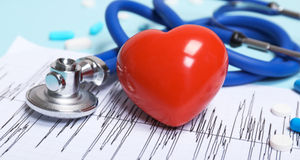Heart Conditions
Signs Of Heart Problems To Look Out For During Winters
3 min read
By Apollo 24|7, Published on - 12 January 2023, Updated on - 09 November 2024
Share this article
0
3 likes

The human heart is one of the body's most vital organs. It continuously replenishes the body with oxygen and essential nutrients. Your heart has to work extra hard during the winter season to maintain the body temperature. It has been found that cases of heart ailments, especially heart attacks are more common among people during the winter season. Read on to know more about the effect of winter on heart health.
Winter And Heart Health
Plenty of research has shown that extreme cold can hamper the cardiovascular functioning of the body. Some of the effects of cold temperatures on heart health include:
- The cold temperature can cause the blood vessels to contract, resulting in an increase in blood pressure. This increases the risk of heart attack and stroke.
- People suffering from coronary heart disease (characterized by plaque build-up in the arteries of the heart) may experience severe chest pain during winter as the coronary arteries constrict due to extreme cold.
Signs Of Heart Ailments
It is advised to keep yourself warm by layering up before going out, consume warm beverages frequently, and stay indoors unless necessary throughout the winter season. Furthermore, the signs of heart issues one should look out for include:
1. Coughing or wheezing
A cough that does not go away, producing white or pink blood-tinged phlegm could be another sign of heart-related problems. A cough occurs when the heart cannot pump blood effectively, causing blood to leak into the lungs. It results in fluid build-up and irritation in the lungs that are similar to the causes of shortness of breath.
2. Swelling in the legs, ankles, or feet
Swelling is caused by excess fluid build-up because of improper blood flow to the heart. When the heart’s lower chambers cannot pump blood efficiently, the blood flow out of the heart slows down. The blood returning to the heart muscle backs up and causes fluid accumulation or swelling in the legs, ankles, or feet.
3. Palpitations
Palpitations refer to a fast or uneven heartbeat, a feeling that the heart is racing or throbbing. The palpitations occur when the heart muscles cannot pump blood with enough force. The heart speeds up to make up for the loss in its ability to pump blood adequately throughout the body, causing fluttering in the heart.
4. Fainting, dizziness, or light-headedness
Abnormal heart function can reduce the flow of blood to the brain. The decreased blood flow can cause dizziness or light-headedness. Also, a severe decline in blood flow to the brain can cause a sudden loss of consciousness. These symptoms signify an abnormal heart rate or the heart’s inability to pump blood.
5. Excessive sweating
Unusual and excessive sweating, especially cold sweats, with no activity or exercise can be a sign of heart problems. When the arteries supplying blood to the heart get blocked, the body uses more energy to provide blood to the heart tissue, and the body temperature increases. Excessive sweating occurs to cool the body.
We often think of the typical symptoms of heart problems as significant and noticeable. However, this may not be the case every time. The early signs are not usually painful or discomforting and we may tend to ignore them. If you are experiencing any of these signs,
Consult An Apollo Cardiologist
Medically reviewed by Dr Sonia Bhatt.
Heart Conditions
Leave Comment
Recommended for you

Heart Conditions
Does Stress Increase the Risk of Hypertension and Cardiovascular Problems?
According to a new study, higher levels of stress can increase one’s risk of high blood pressure and cardiovascular events such as heart attack or stroke.

Heart Conditions
The Coffee & Heart Connection: Is It Good or Bad?
There may be numerous benefits of drinking coffee but like everything else, it too comes with some side effects and risks. This article highlights the benefits and side effects of coffee on your heart.

Heart Conditions
Pregnancy and High Blood Pressure: What Are the Risks?
Recent studies have shown that women suffering from hypertensive disorders during pregnancy are more likely to experience cognitive impairment later in life.
Subscribe
Sign up for our free Health Library Daily Newsletter
Get doctor-approved health tips, news, and more.
Visual Stories

7 Tips to Manage Hypertension
Tap to continue exploring
Recommended for you

Heart Conditions
Does Stress Increase the Risk of Hypertension and Cardiovascular Problems?
According to a new study, higher levels of stress can increase one’s risk of high blood pressure and cardiovascular events such as heart attack or stroke.

Heart Conditions
The Coffee & Heart Connection: Is It Good or Bad?
There may be numerous benefits of drinking coffee but like everything else, it too comes with some side effects and risks. This article highlights the benefits and side effects of coffee on your heart.

Heart Conditions
Pregnancy and High Blood Pressure: What Are the Risks?
Recent studies have shown that women suffering from hypertensive disorders during pregnancy are more likely to experience cognitive impairment later in life.